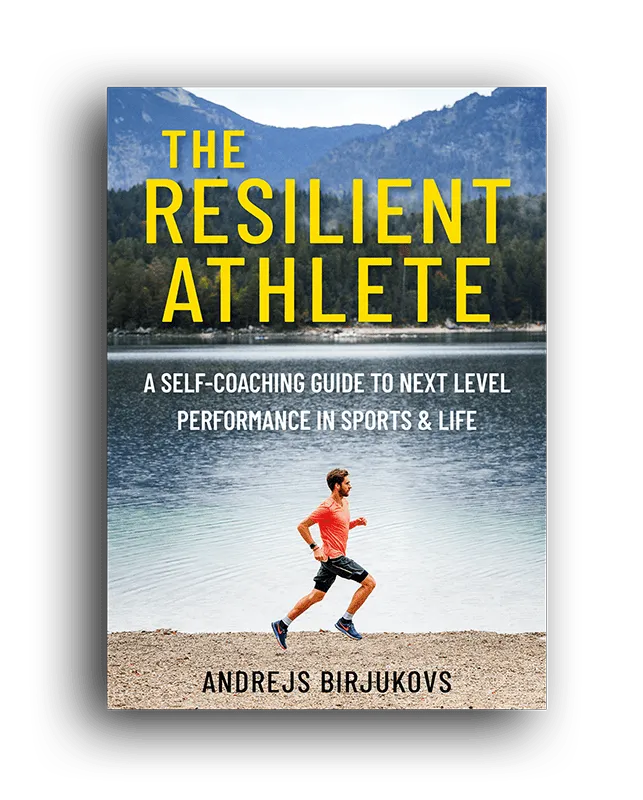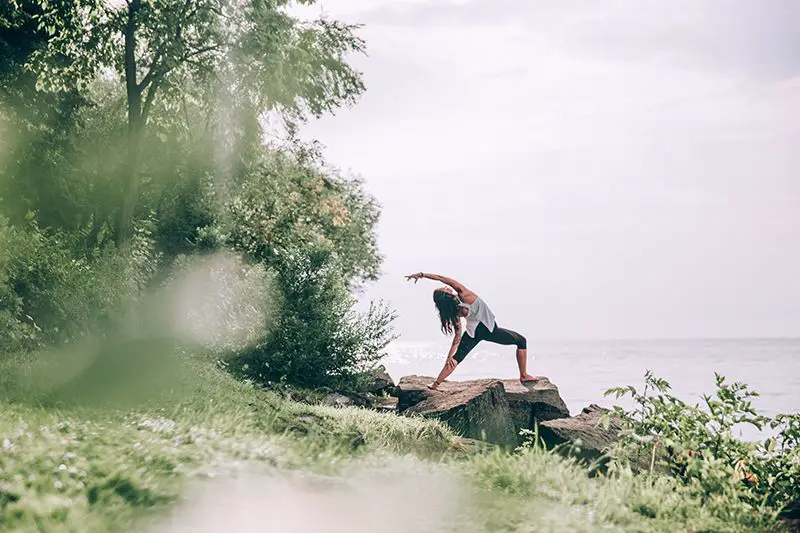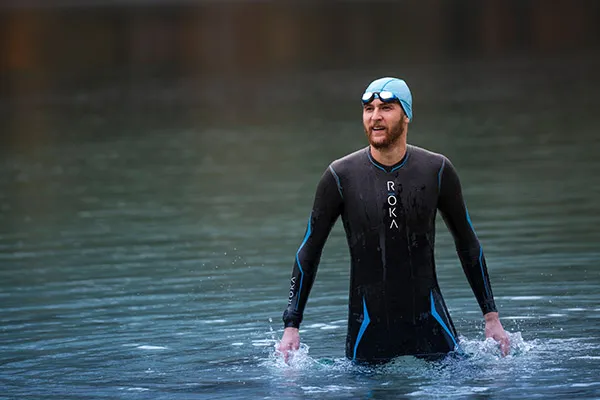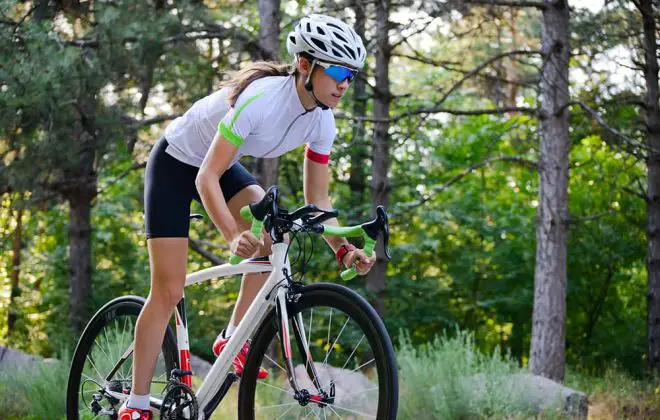9 Strategies To Develop Good Habits And Make Them Stick
At a first glance leading a healthy lifestyle might seem intimidating. Waking up early, exercising, watching your diet, meditating – sounds like too much work, right? But it’s not that complicated after all. All one needs to do is develop good habits – everything else takes care of itself.
It doesn’t require ‘all or nothing’ attitude. As with many things in life, just getting started in one area creates a domino effect and the rest starts to follow.
I remember a while ago I was reading about how refined sugars and insulin sensitivity cause energy and mood swings. As an experiment, I tried substituting sugary snacks with fruits and quickly noticed that headaches I sometimes experienced at the end of the workday went away.
And the snowball just started rolling. I tried going to bed early to get more sleep and recover for training sessions. Surprisingly, that led to waking up early and having time for a morning run or writing in a training diary. I continued to play around with other habits and suddenly found my lifestyle to be much healthier than I ever though I could manage.
Why develop good habits?
The oldest area of our brain – appropriately named the reptilian brain – is responsible for our primal instincts. It doesn’t like change – it’s designed to save as much energy as possible and keep the body safe.
The issue is that relying on willpower to make healthy choices in life is not very sustainable. Our reptilian brain likes automation, but willpower generally runs out by lunchtime. Which is why we tend to procrastinate important decisions & actions, get addicted to something, revert to convenient, but unhealthy food options.
We are what we repeatedly do. Excellence, then, is not an act, but a habit.
While everyone has their own idea of healthy living, it’s nothing more than a set of small consistent actions people do on a daily basis. In other words, healthy living is built on good habits.
Those who have the discipline to develop good habits once can significantly improve the quality of their lives down the road. Without much additional effort – habits will make it automatic.

Moving more for instance, is a great example how habits can improve the quality of life. Those who move a lot (walk, exercise or even practice yoga) have a faster metabolism which slows down ageing processes and everything associated with it. Low energy levels, tight muscles & muscle atrophy, extra weight & fat – all gone with just one habit change.
Drinking more water, waking up early, meditating – all of these are great habits to start leading the healthy lifestyle. The sky is the limit.
Strategies to develop good habits & make them stick
Changing habits or developing new ones is not a quick process. It requires patience, discipline and persistence. In fact, often a habit is only a result of a deeper problem (i.e. emotional) that requires some work on self-awareness.
So, how to develop good habits? Where to start? How to make them stick?
Scroll down for strategies on how to effectively develop good habits and/or break bad ones. These can work as standalone practices, yet are more powerful when combined together.

The Resilient Athlete
A Self-Coaching Guide to Next Level Performance in Sports & Life
Are you aiming to become a resilient athlete who is able to withstand any pressure? Be able to jump on any opportunity? Take any challenge life throws at you head on?
Then this book is for you.
Learn more#1 Cut the habit into smallest pieces and focus on one piece at a time
Focusing on one thing at a time is the best way to ensure consistency. If possible, make it as easy as possible for yourself by splitting a habit into smaller steps. Big life and behavioural changes can be very intimidating – it’s much less stressful to focus on something small.
Take moving more, for example. It’s a great habit and it’s super healthy to be active. But where one should start? Doing all possible activities at once will leave a person tired very quickly. Instead, it’s best to start small, focus on one thing at a time and ‘build as you go’:
- Take the stairs instead of elevators
- Use a standing desk to work and have ‘walking’ meetings
- Don’t take the public transport if you need to travel less than 2 stops away
- Park the car further from the entrance
- Commute by bicycle
- Walk 10,000 steps per day
#2 Minimize or eliminate the stimuli
Often habits are triggered by external stimuli or the environment itself. Some are good and productive, like stopping at red lights or wearing seatbelts when in a car. Others not so much, like message notifications that force people to interrupt focused work and check their phone.
To stop the unwanted behaviour, look for external stimuli you can minimize or remove (even for a while) to avoid triggering a specific habit.
For example, clean up the desk if clutter prevents you from focusing. Or put on noise cancelling headphones (or ear plugs) if noise is what distracts you.
#3 Create systems to automate the good habit and stop the bad one
What makes the habit stick – both good and bad one – is automation. Regardless, whether you want to develop good habits or cut bad ones, a system is much more powerful than willpower.
Automating good habits is simple. All one needs to do is reduce the complexity of a good habit and increase it for the bad one. That will make the desired behaviour the easiest one to do.
Put your phone in the next room while working – that way you won’t be distracted by all notifications. Lay out running clothes the evening before – once you wear them in the morning it’s much easier to get out the door.
#4 Replace a bad habit with a good one
In his book “The power of habit” Charles Duhigg writes that a habit loop consists of 3 distinct phases – cue, habit and reward. While the cue (something that triggers the habit) and the reward (satisfaction from the action) are usually constant, the habit itself can be changed.
It’s very hard to simply stop the bad habit. One will find it much easier to substitute it with a good one instead.
When we take something out of our life, we have to replace it. If we simply remove the habit, then the stimuli that triggers it still remains. So, what ends up happening is that a person adopts another bad habit.
People who quit smoking often turn to drinking, because the cue – stress and emotional pressure – is still there. A much better approach would be to substitute it with a different stress-relieving activity, like meditation or running.
#5 Focus on what you’re getting, not on what you’re giving up
A great way to develop good habits is not to think about what you’re giving up for it, but rather focus on what you get to enjoy. True behavior change is actually an identity change. It’s one thing to say I want it and it’s a whole other thing is to say I am this.
Think about all the things you get to try and what you unlock for yourself. Health, energy, spirituality, good mood, positivity – whatever you set your mind on. It’s really all about the lifestyle, not the habit or even the end goal. If you do like the lifestyle relevant habits will come naturally.

For example, if you want to stay in shape, but don’t like going to the gym, then pick activities you do enjoy and practice them often. Yoga, martial arts, dancing, jumping, hiking – these are all great activities and forms of exercise. One doesn’t have to be miserable to be fit.
#6 Get great at showing up
Usually it’s the mental struggle to do something new that’s very challenging. Once you start something, more often than not it gets easier to carry on. Like getting out the door to start the run or getting in the car to drive to the gym.
One of the most effective ways to ensure consistency and make sure good habits stick is to be great at starting. Make the activity ridiculously easy to begin and repeat that ‘start process’ until it becomes a habit.
#7 Never miss two in a row
We’re all humans and none of us is perfect. The reality is that mistakes happen and there might be some circumstances when we don’t stick to a certain habit. However, it’s never one mistake that throws the whole plan or lifestyle off track. It’s almost always a series of slip-offs that create a destructive downward spiral.
That doesn’t have to define us, though. It’s all about if we’re able to pull ourselves together and recover from these slip-offs.
Not missing two in a row is my favourite ‘consistency hack’. It can be about missing training sessions or healthy eating. Whichever habit you’re building.
If you miss a training session, don’t beat yourself up for it. Just make sure you don’t miss the next one and carry on with the plan. If you had some junk food, drink a healthy smoothie to get back on track. Don’t get carried away by it.
#8 Focus on 1% improvement
As we develop good habits various doubts might creep in. How long will it take? Can I really do it? Will I have the discipline to make it happen?
It’s important to remember that we’re after consistent improvements, not instant gains. Habits compounded over multiple weeks, months and years will yield massive results and that’s all that matters. It’s always possible to find a 1% improvement, so keep striving to be a bit better than yesterday and eventually you’ll get there.
Having one great training session will not make an athlete fit instantly. But 4 consistent and merely good training sessions per week for a couple of months will.
Related: How Supercompensation & Consistency Make Athletes Uber Fit
#9 Celebrate behaviours
Rewarding yourself for a specific behaviour links pleasure to it and creates an emotional connection with the habit. That way it has a higher probability of repeating itself.
Attach love to a new habit and you’ll want to do it more.
It’s important to celebrate and reward personal achievements, not only specific results. Especially in sports, where there are so many external factors and we can’t always control the outcome of a training session. Let alone a race.
What we can control is our response to the stimuli and our actions. And that’s where developing good habits matters.
Did you find this information useful? Share the post with others using the buttons below.
Tags In
Andrejs
Related Posts
5 Comments
Leave a Reply Cancel reply
GET A FREE TRAINING PLAN
Subscribe to my email list and get access to a free 4-week “back in shape” training plan
You’ll also get two full-body strength sessions and some other goodies!

How did I get here?
Hey there! My name is Andrejs and I am here to inspire, entertain and get you fit for any adventure.
I went from being an over trained pro athlete to an endurance coach sharing how to listen to your body and live life to the fullest.
Traveling, new sports & activities brought new meaning to my training and made it much more effective, fun and enjoyable. And I'm here to help you do the same.



It’s very easy to adopt good habits but it is really very very tough to avoid bad habits.
Nicely written. Keep it up.
Let’s hope for the best.
Thanks for your kind words! It’s always going to be uncomfortable to change the way we are used to live our life. But embracing that discomfort is what pushes us to new heights
Hey Andrejs, amazing post. It was very informative and fascinating to read. I really enjoyed how you covered why it is important to have healthy habits as well as useful tips on how to form them: such as focusing on what you’re getting, not what you’re giving up. I believe that focusing on behaviors instead of outcomes is important because you can only control certain things.
Very good information is given in this article. It will help many people to get success in their life. I really liked what you gave me and I will apply these habits in my life. Thank you very much for the information
Thank you, Prakash, for the feedback!